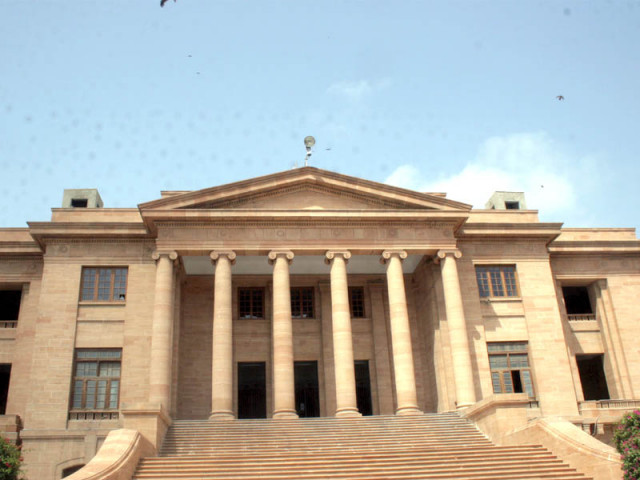SC moved against acquittal of Pearl case accused
Farooq H Naek to plead Sindh govt’s petition filed against SHC’s April 2 order

PHOTO: EXPRESS/File
Earlier this month, the SHC commuted death sentence of Ahmed Omar Saeed Sheikh – convicted for kidnapping and murdering US journalist Daniel Pearl in 2002 – to seven years and acquitted three others who were serving life terms in the case – almost two decades after they were found guilty and jailed.
A two-member SHC bench comprising Justice KK Agha and Justice Zulfiqar Sangi had announced the verdict on appeals filed by the four men against their 2002 convictions by an anti-terrorism court (ATC).
Sindh government had announced to file a review petition against the SHC order immediately after unveiling of the verdict and also decided to detain the accused for three months under section 3 (1) of West Pakistan of Maintenance Public Order Ordinance 1960.
A senior official in Sindh government on April 5 revealed to The Express Tribune that the provincial government will engage a private counsel to file a criminal appeal.
Justice Isa says stopping congregations in mosques justified in Islam
On Wednesday, the Sindh Prosecutor General challenged the verdict in the apex court. Advocate Farooq H Naek – who is also a PPP leader – will plead the case on behalf of the PPP led Sindh government.
Three separate criminal petitions have been filed on the same grounds seeking death penalty for all accused. The petitions contend that “last seen evidence”, “impersonation” and “identification parade” duly proved crime of the accused and were maintained concurrently by both the lower courts.
Moreover, the video cassette was never challenged which showed the act of murder and the same was verified by a public official.
“In view of these collective proofs together with the clear and categorical confessional statements of Respondents and the co-accused, the acquittal and modification of sentence through the impugned judgment is not sustainable and is liable to be set aside.
“Similarly, the evidence of natural and independent witnesses ie PW-14 and PW-18 confirmed the demand of ransom made by respondents accused and which fact also stood proven through documentary evidence,” said the criminal petition.
Sindh High Court extends stay on school tuition fee concession
The petition further said the offences created a sense of fear and terror in the minds of the public at large, both nationally and internationally and as such all the accused were guilty of the charges leveled against them on all counts.
“The SHC has failed to appreciate the aggravating factors involved in the case. The acquittal of the accused and modification of death sentence in the absence of the mitigating circumstance caused a serious miscarriage of justice and violates the principles settled down by SC,” added the petition.
It said the SHC while giving benefit to the accused relied upon press clippings but the press clippings showing the confession of the accused Ahmed Omer Saeed Sheikh which he had categorically made before the trial court were neither considered nor appreciated.
The petition stated that SHC failed to consider the cognitive question of accused’s robust affiliation with a proscribed organization and having a hardened criminal background.
Covid-19 cases up by 40% in five days: doctors
It said the accused acted so as to achieve nefarious designs and committed the offences which fall under the Anti-Terrorism Act, 1997 and such factum has been accepted and admitted by the SHC in its order.
“But while acquitting the respondents/accused and modifying the sentence of the co-accused, the high court has taken a glaring but contradictory view which cannot be sustained in the eye of law and has caused serious miscarriage of justice.
"The present case is a fit case for conviction in the light of the judgment in case of Bahadur Vs The State (PLD 1996 SC 336), but the Hon'ble High Court ignored the dictum laid down by this Hon'ble Court in the afore-referred judgment
“The Hon'ble High Court has erred in dealing with the legal question of burden of proof as the prosecution had safely discharged the burden to prove the guilt of the accused/respondents by producing cogent and sufficient evidence.”
Can dogs detect Covid-19? Canines in training to sniff out virus
It said the accused failed to produce any material evidence to create doubt against the evidence produced by the prosecution. Rather the convict Ahmed Omer Saeed Sheikh during remand categorically admitted his guilt before the learned presiding officer/trial judge.
“Hence the offences were proven that all accused in connivance with each other committed the offences and they are vicariously liable for committal of all offences including murder of Daniel Pearl,” the petition said.



















COMMENTS
Comments are moderated and generally will be posted if they are on-topic and not abusive.
For more information, please see our Comments FAQ